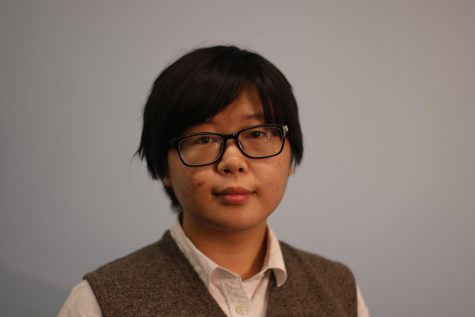Kim: On Starbucks names and microaggressions
October 4, 2019
I started using a Starbucks name in March.
My Korean name, Won Hee, was too foreign for the baristas to spell. It held up the line, and there were many grumpy, caffeine-deprived customers behind me. So when the barista asked me to repeat my name for the third time, I told him that he could just write down “Charlie.” As an economics minor, I can appreciate efficiency, and I didn’t mind that my real name wasn’t on the cup. These sort of mistakes happen even to people with standard American names.
But in some way, I’ve always had an issue with my name.
Personally, I love my name. My parents carefully and painstakingly picked it out for me, and the hanja, or traditional characters, that make up my name mean something along the lines of: “I wish that you will always be shining.” No, my issues stem from my name’s interactions with other people.
Teachers have misspelled or mispronounced my name from nearly the moment I stepped into America. However, I was lucky enough to grow up in immigrant-rich areas like California and New Jersey, and my teachers and peers quickly corrected themselves.
Case Western Reserve University has not offered me the same experience.
In my second year, I took an introductory class that took attendance every day. I remember specifically that the professor told us to write our names in “the English alphabet, not the Chinese one.” Maybe I imagined it, or dramatized it in my head in the aftermath, but she seemed to look at the Asian or Asian-American students in particular. This felt wrong for several reasons. For one thing, I wasn’t Chinese. For another, the Chinese language does not have an alphabet. Uncomfortable with the whole situation, I ended up dropping the course before add/drop ended.
Now, while I’m in my fourth year at this school, something similar happened in an elective class I had been wanting to take for a while. The professor asked my name, and upon hearing it, she asked, “That isn’t an American name, is it?”
I explained how to pronounce my name—one, like the number, and he, like the pronoun.
“I guess I’ll never say your name then.”
Ouch. I considered telling her my Starbucks name, but I was interrupted by the sound of laughter from my classmates.
For people who have never been bullied, this behavior may seem innocuous, but being laughed at by a class is one of the worst feelings in the world. Though they were responding to her joke, it sounded to me like they were agreeing with her.
People mock microaggressions and make jokes about them, but this incident marked the second time comments like this have caused me to drop a course I wanted to take. I don’t want to disclose the names of the specific professors or classes—this article isn’t meant to call them out by name—but someone needs to speak out against this behavior.
It’s all right to mispronounce or misspell names. It’s all right to not know everything about a foreign culture, and it’s more than all right to use a pseudonym so you can get the correct order at Starbucks. But it’s not all right to use something like a name as fodder for insensitive jokes; alienating a group or a person in a class to gain the approval of the rest of the class should never be okay.
I wasn’t able to say anything directly to my professors, and considering that I’m about to graduate, it’s too late for me. My hope for the current future students of CWRU is that in similar situations, whether they are a victim or a bystander, they can be braver than I was and confront those insensitive enough to act so unprofessional.
Won Hee Kim is a fourth-year English major with minors in creative writing and economics.



